Budget 2021 has ticked the majority of boxes for farmers. By far the biggest test for Minister for Agriculture Charlie McConalogue was securing the budget allocation necessary to allow for the rollover of vital schemes, including GLAS, ANC, BDGP and the Sheep Welfare Scheme. In the past, we have seen farm incomes hit hard in years where there has been a break in these schemes.
As we detail in this week's edition, farmers can now plan for 2021 on the basis that schemes will remain in place. Alongside this, a new €45m COVID-19 fund open to beef and dairy farmers has been established. We understand this will allow for a rollover of the BEEP-S scheme with additional funding of €5m to support the weighing of dairy beef calves.
It had been feared that the rollover of GLAS would see a new pilot REPS programme promised by Government delayed. However, as we report this week, the minister has confirmed to the Irish Farmers Journal that this will not be the case. A €79m scheme, part-funded through the carbon tax, will see a pilot REPS programme put in place for farmers that are not currently in an environmental scheme.
The funding will also be used to provide top-up payments for farmers who take on additional measures within GLAS. It is encouraging to see the minister recognise the environmental dividend from the tillage sector, having ring-fenced €10m within the new environmental scheme for it.
Dairy farmers will be relieved to see necessary funding allocated for existing commitments in TAMS and for the scheme to remain open next year. Meanwhile, providing the necessary funding for the introduction of a Food Ombudsman shows a willingness in Government to follow through on the Programme for Government to deliver fairness, equity and transparency in the food chain. It is a step in the right direction.
Budget 2021 finally sees the anomaly in the earned income tax credit addressed with the self-employed credit increasing by €150 per annum to match the PAYE credit. The extension of consanguinity and consolidation relief along with the increase in flat-rate VAT is also positive.
Meanwhile, the threat of Brexit continues to hang over the sector. A €3.4bn recovery fund has been established within next year’s budget for sectors most exposed to a no-deal Brexit. It replaces the €110m fund allocated to agriculture in Budget 2020. The scale of the fund now in place is much more reflective of the level of financial exposure.
The €3.4bn recovery fund supported by EU funds should help provide some shelter against the first wave of a no-deal Brexit
Of course, there will be plenty of competing voices around the Cabinet table. It is critical that this fund is allocated on a proportionate basis that reflects the financial impact on the sector, relative to its income generating capacity. If Minister McConalogue can secure this, then the fund should provide a sizeable level of support for the agricultural sector. Attention will then focus on An Taoiseach Micheál Martin securing an allocation under the €5bn EU Brexit adjustment fund that reflects Ireland’s unique exposure.
Overall, Minister McConalogue has secured a budget for farmers that largely steadies the ship in the midst of COVID-19 challenges and at a time of transition within the CAP. The €3.4bn recovery fund supported by EU funds should help provide some shelter against the first wave of a no-deal Brexit. The efforts of IFA members that lobbied politicians the length and breadth of the county in recent weeks with clear requests of Government clearly had an impact.
While Budget 2021 represents a solid outcome, it is important to note that this has not been a giveaway budget for farmers. It largely represents a continuation of existing investment within the sector and initial provision for the threat of Brexit.
It is important that this is reinforced in the context of a move towards more austere budgets in future years. Yes, Government has taken the correct approach in moving to protect society and businesses in the face of a crisis while using the power of the State to stimulate a recovery in the economy. But Budget 2021 is going to have to be paid for at some point.
Farmers were not on the budget giveaway list, as outlined by Colm McCarthy – therefore they should be well down the list when attention turns to the need to deliver budget surpluses.

Brexit: reality dawns for British farmers
The reality of Brexit for British farmers became clear this week. As Phelim O’Neill reports, the UK government has voted down the latest attempt to require food imports into the UK to meet current domestic legal standards from the start of next year. By doing so, the government retains the right to accept lower standards on food imports as part of negotiations on future trade deals.
The motivation by MPs to reject the Lords amendment to the Agriculture Bill is firmly based on future trade deals. The UK’s food import requirement in 2019 was £47.8bn (€53bn) with a trade deficit in food of £24.2bn (€27bn). It is by some distance the most valuable bargaining chip the UK brings to the table in trade negotiations – particularly with the US, Mercosur, Australia and New Zealand.

The move risks major value destruction in the UK market and it’s not just British farmers that will be exposed – Irish farmers will feel it too. British product may be in a position to maintain a market premium as domestically produced – albeit from a lower base price. Irish product will not have that protection. Our beef could quickly find itself competing with imports entering at close to world market prices. It reinforces the need for any Brexit package for Irish farmers to recognise the impact of value destruction in the UK market as well as the direct financial impact of tariff and non-tariff barriers. It is critical that An Taoiseach Micheál Martin reinforces this when EU leaders meet on Thursday. The IFA Brexit emergency plan details the devastating impact on farmers and the measures that can mitigate this.
The outcome of the vote by MPs on Monday night should not come as a surprise. It reflects the extent to which a cheap food policy is woven into the DNA of Westminster. When a member of the EU, the UK repeatedly led the charge to reduce supports under CAP and to open the EU market to increased food imports. It was the French and Irish that provided the necessary counterweight to protect British farmers.
Emissions: climate seminar
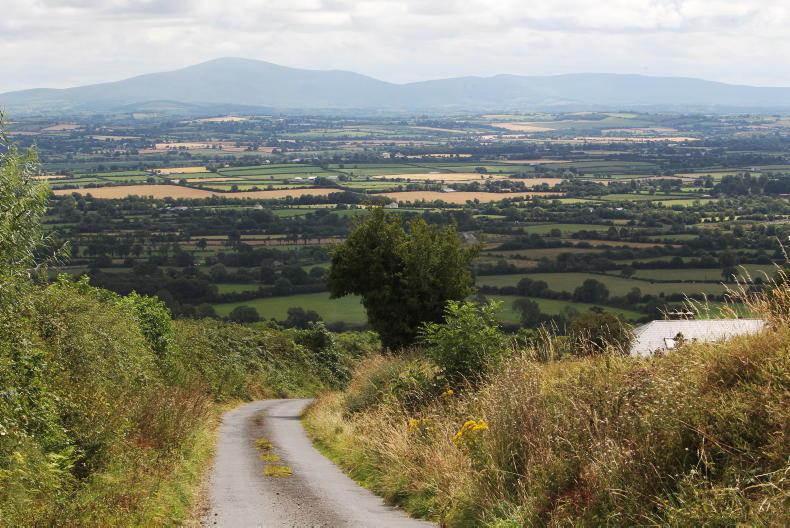
What is the global warming impact of methane emissions from Irish livestock? Under the current methodology used by the EPA, the Global Warming Potential (GWP) of our livestock herd stands at 13m tonnes of CO2 equivalent. In this week's edition, Lorcan Allen assesses GWP based on a metric developed by world renowned climate scientist Prof Myles Allen from Oxford University. The outcome is vastly different, reducing the GWP to 0.5m tonnes CO2 equivalent.
The implications for Irish agriculture are too great to ignore given the disparity. At 11am on Friday, we will hold a climate seminar live on www.farmersjournal.ie where we will broadcast our interview with Prof Allen and seek input and reaction from a range of industry experts and activists.
Of course the most important consideration is whether we have simply found a more accurate way to measure the wrong thing. Within the Programme for Government there is a commitment to conduct a review of GHG emissions on a consumption basis with the goal of ensuring that Irish action to reduce emissions supports reductions globally. Ultimately, the objective is to reduce the environmental impact of global food production not simply move the footprint to different parts of the world.
We have repeatedly highlighted across the pages of the Irish Farmers Journal the flaws in reducing our national livestock herd to achieve territorial emissions targets only to shift production towards more carbon-intensive models and further incentivise the destruction of the Amazon.
Women & Agriculture Awards: celebrating innovation and ingenuity
We all know women who have established innovative and successful farm businesses. We have celebrated these women through the Women & Agriculture awards for almost 10 years.
We have reached the finale of a new round of these awards, which will take place on Wednesday 21 October at 7pm. You can join the celebrations on the night by going to www.ifj.ie/awards or our social media sites.
The 11 finalists include a snail farmer, a couple of cheese makers, a poultry producer, a beetroot juice producer, a garlic and asparagus producer, several tourism products, a beekeeper and a pair of tea rooms.
So join us for what promises to be a very positive event.
Thanks, too, to FBD and the IFA, our partners in these awards, which carry a prize fund of €8,000.
Read more
'Health warning' on consanguinity relief in Budget 2021 - ifac
Budget 2021: REPS scheme one step closer
Budget 2021 has ticked the majority of boxes for farmers. By far the biggest test for Minister for Agriculture Charlie McConalogue was securing the budget allocation necessary to allow for the rollover of vital schemes, including GLAS, ANC, BDGP and the Sheep Welfare Scheme. In the past, we have seen farm incomes hit hard in years where there has been a break in these schemes.
As we detail in this week's edition, farmers can now plan for 2021 on the basis that schemes will remain in place. Alongside this, a new €45m COVID-19 fund open to beef and dairy farmers has been established. We understand this will allow for a rollover of the BEEP-S scheme with additional funding of €5m to support the weighing of dairy beef calves.
It had been feared that the rollover of GLAS would see a new pilot REPS programme promised by Government delayed. However, as we report this week, the minister has confirmed to the Irish Farmers Journal that this will not be the case. A €79m scheme, part-funded through the carbon tax, will see a pilot REPS programme put in place for farmers that are not currently in an environmental scheme.
The funding will also be used to provide top-up payments for farmers who take on additional measures within GLAS. It is encouraging to see the minister recognise the environmental dividend from the tillage sector, having ring-fenced €10m within the new environmental scheme for it.
Dairy farmers will be relieved to see necessary funding allocated for existing commitments in TAMS and for the scheme to remain open next year. Meanwhile, providing the necessary funding for the introduction of a Food Ombudsman shows a willingness in Government to follow through on the Programme for Government to deliver fairness, equity and transparency in the food chain. It is a step in the right direction.
Budget 2021 finally sees the anomaly in the earned income tax credit addressed with the self-employed credit increasing by €150 per annum to match the PAYE credit. The extension of consanguinity and consolidation relief along with the increase in flat-rate VAT is also positive.
Meanwhile, the threat of Brexit continues to hang over the sector. A €3.4bn recovery fund has been established within next year’s budget for sectors most exposed to a no-deal Brexit. It replaces the €110m fund allocated to agriculture in Budget 2020. The scale of the fund now in place is much more reflective of the level of financial exposure.
The €3.4bn recovery fund supported by EU funds should help provide some shelter against the first wave of a no-deal Brexit
Of course, there will be plenty of competing voices around the Cabinet table. It is critical that this fund is allocated on a proportionate basis that reflects the financial impact on the sector, relative to its income generating capacity. If Minister McConalogue can secure this, then the fund should provide a sizeable level of support for the agricultural sector. Attention will then focus on An Taoiseach Micheál Martin securing an allocation under the €5bn EU Brexit adjustment fund that reflects Ireland’s unique exposure.
Overall, Minister McConalogue has secured a budget for farmers that largely steadies the ship in the midst of COVID-19 challenges and at a time of transition within the CAP. The €3.4bn recovery fund supported by EU funds should help provide some shelter against the first wave of a no-deal Brexit. The efforts of IFA members that lobbied politicians the length and breadth of the county in recent weeks with clear requests of Government clearly had an impact.
While Budget 2021 represents a solid outcome, it is important to note that this has not been a giveaway budget for farmers. It largely represents a continuation of existing investment within the sector and initial provision for the threat of Brexit.
It is important that this is reinforced in the context of a move towards more austere budgets in future years. Yes, Government has taken the correct approach in moving to protect society and businesses in the face of a crisis while using the power of the State to stimulate a recovery in the economy. But Budget 2021 is going to have to be paid for at some point.
Farmers were not on the budget giveaway list, as outlined by Colm McCarthy – therefore they should be well down the list when attention turns to the need to deliver budget surpluses.

Brexit: reality dawns for British farmers
The reality of Brexit for British farmers became clear this week. As Phelim O’Neill reports, the UK government has voted down the latest attempt to require food imports into the UK to meet current domestic legal standards from the start of next year. By doing so, the government retains the right to accept lower standards on food imports as part of negotiations on future trade deals.
The motivation by MPs to reject the Lords amendment to the Agriculture Bill is firmly based on future trade deals. The UK’s food import requirement in 2019 was £47.8bn (€53bn) with a trade deficit in food of £24.2bn (€27bn). It is by some distance the most valuable bargaining chip the UK brings to the table in trade negotiations – particularly with the US, Mercosur, Australia and New Zealand.

The move risks major value destruction in the UK market and it’s not just British farmers that will be exposed – Irish farmers will feel it too. British product may be in a position to maintain a market premium as domestically produced – albeit from a lower base price. Irish product will not have that protection. Our beef could quickly find itself competing with imports entering at close to world market prices. It reinforces the need for any Brexit package for Irish farmers to recognise the impact of value destruction in the UK market as well as the direct financial impact of tariff and non-tariff barriers. It is critical that An Taoiseach Micheál Martin reinforces this when EU leaders meet on Thursday. The IFA Brexit emergency plan details the devastating impact on farmers and the measures that can mitigate this.
The outcome of the vote by MPs on Monday night should not come as a surprise. It reflects the extent to which a cheap food policy is woven into the DNA of Westminster. When a member of the EU, the UK repeatedly led the charge to reduce supports under CAP and to open the EU market to increased food imports. It was the French and Irish that provided the necessary counterweight to protect British farmers.
Emissions: climate seminar

What is the global warming impact of methane emissions from Irish livestock? Under the current methodology used by the EPA, the Global Warming Potential (GWP) of our livestock herd stands at 13m tonnes of CO2 equivalent. In this week's edition, Lorcan Allen assesses GWP based on a metric developed by world renowned climate scientist Prof Myles Allen from Oxford University. The outcome is vastly different, reducing the GWP to 0.5m tonnes CO2 equivalent.
The implications for Irish agriculture are too great to ignore given the disparity. At 11am on Friday, we will hold a climate seminar live on www.farmersjournal.ie where we will broadcast our interview with Prof Allen and seek input and reaction from a range of industry experts and activists.
Of course the most important consideration is whether we have simply found a more accurate way to measure the wrong thing. Within the Programme for Government there is a commitment to conduct a review of GHG emissions on a consumption basis with the goal of ensuring that Irish action to reduce emissions supports reductions globally. Ultimately, the objective is to reduce the environmental impact of global food production not simply move the footprint to different parts of the world.
We have repeatedly highlighted across the pages of the Irish Farmers Journal the flaws in reducing our national livestock herd to achieve territorial emissions targets only to shift production towards more carbon-intensive models and further incentivise the destruction of the Amazon.
Women & Agriculture Awards: celebrating innovation and ingenuity
We all know women who have established innovative and successful farm businesses. We have celebrated these women through the Women & Agriculture awards for almost 10 years.
We have reached the finale of a new round of these awards, which will take place on Wednesday 21 October at 7pm. You can join the celebrations on the night by going to www.ifj.ie/awards or our social media sites.
The 11 finalists include a snail farmer, a couple of cheese makers, a poultry producer, a beetroot juice producer, a garlic and asparagus producer, several tourism products, a beekeeper and a pair of tea rooms.
So join us for what promises to be a very positive event.
Thanks, too, to FBD and the IFA, our partners in these awards, which carry a prize fund of €8,000.
Read more
'Health warning' on consanguinity relief in Budget 2021 - ifac
Budget 2021: REPS scheme one step closer







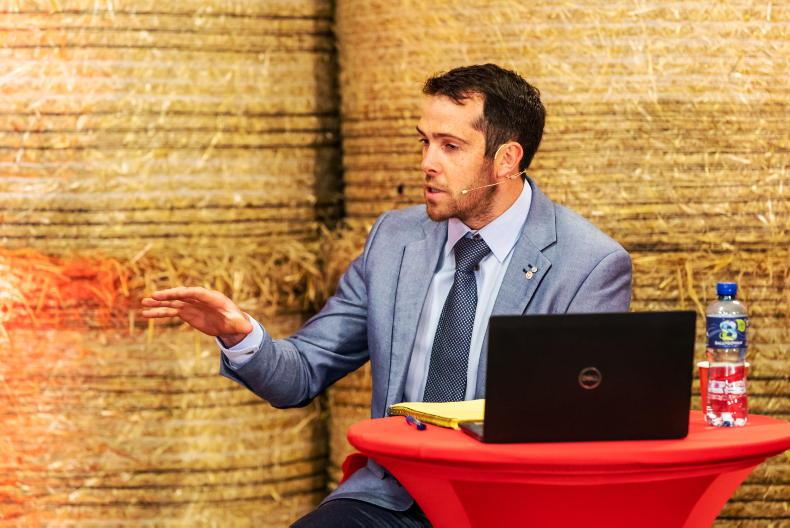
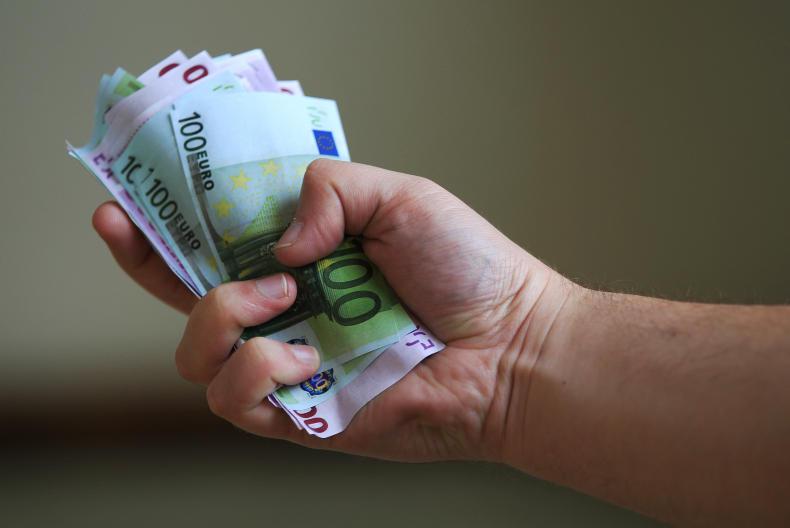
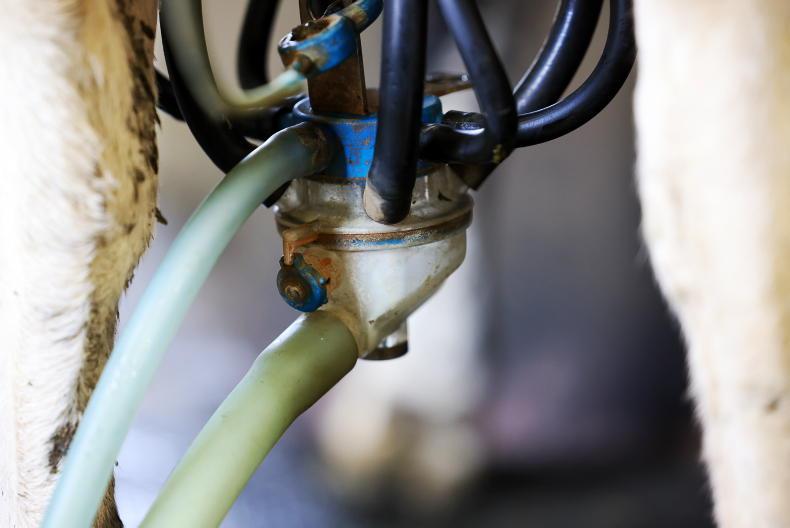
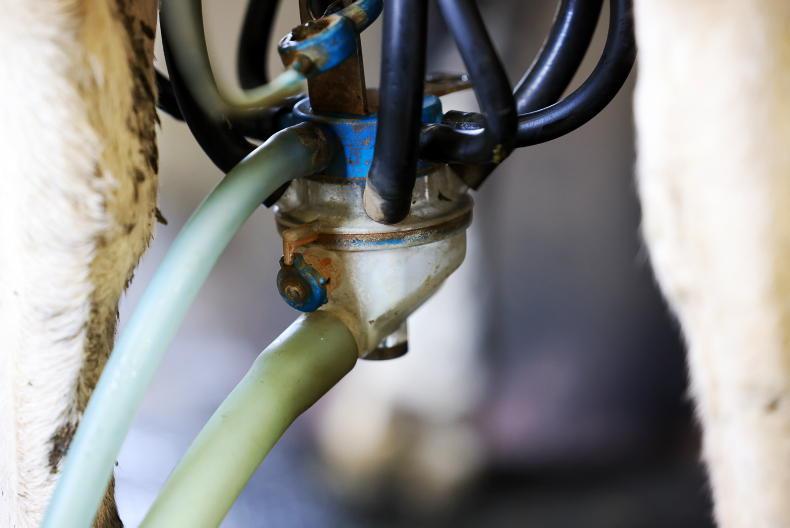
SHARING OPTIONS